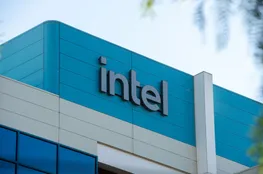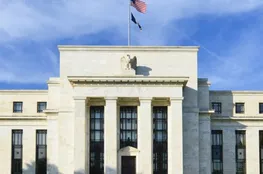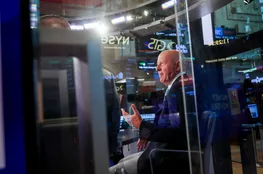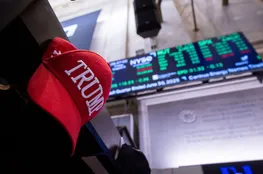Nuclear power investment is experiencing a remarkable resurgence, driven by growing global demand and strategic policy shifts. Goldman Sachs highlights several stocks offering investors compelling opportunities to capitalize on this expanding trend. Historically, the nuclear industry faced significant headwinds following the 2011 Fukushima disaster, characterized by prolonged underinvestment and regulatory uncertainty. However, a recent inflection point has emerged as governments worldwide increasingly recognize the vital role nuclear energy plays in achieving carbon-neutrality goals. This renewed focus is fueling substantial investment growth within the sector. Goldman Sachs reports a dramatic increase in global nuclear investment over the past four years, with a compound annual growth rate of 14%, a significant jump compared to the pre-2020 rate of approximately 1%. This shift reflects a broader global commitment to reducing carbon emissions and diversifying energy sources. The policy environment has also undergone a transformation, with supportive measures accelerating nuclear deployment. Notably, President Donald Trump’s executive orders aimed to expedite the approval process for new nuclear projects.
Cameco Corp. (CCJ): As one of the world’s leading uranium mining companies, Cameco presents a straightforward 100% exposure to the nuclear value chain. The company’s strategic assets include significant stakes in two uranium mines located in Canada and a key operation in Kazakhstan. Furthermore, Cameco holds a 49% ownership position in Westinghouse, providing direct access to reactor construction opportunities. Goldman Sachs’ research team rates Cameco as a ‘Buy’ with a price target of $65, indicating potential for an 11% upside. This rating is based on the anticipated continued growth in uranium demand and Cameco’s dominant market position. Investors are encouraged to carefully monitor uranium spot prices and the progression of new nuclear projects, as these factors will directly influence Cameco’s performance. The company’s robust financial standing and strategic investments position it favorably within the evolving nuclear landscape.
NuScale Power Corp. (NUS): NuScale stands out as the sole U.S.-based company to have submitted a small modular reactor (SMR) design to the Nuclear Regulatory Commission (NRC). The company is poised to receive final certification this year, marking a crucial step towards deploying SMR technology. SMRs are expected to play a pivotal role in the future of nuclear energy, promising reduced costs and accelerated deployment timelines. Goldman Sachs maintains a ‘Neutral’ rating on NuScale, setting a price target of $24, which implies a 21% downside. This assessment acknowledges the inherent risks associated with regulatory approvals and the broader acceptance of SMR technology. Despite this, the potential for significant upside exists if NuScale successfully navigates the certification process and secures contracts for SMR deployments. Investors should closely follow the NRC’s review process and the company’s progress in securing key milestones.
GE Vernova (GEV): GE Vernova, a diversified manufacturer of power equipment, has developed an SMR design that has already been approved for construction in Ontario, Canada. The company anticipates the ability to add up to 5 gigawatts of nuclear-generated energy in the U.S. by the end of the decade through strategic partnerships. Goldman Sachs rates GE Vernova as a ‘Buy’ with a price target of $500, representing a substantial 7% upside. This optimistic outlook is driven by GE Vernova’s established position in the power equipment sector and its strategic focus on supporting the deployment of SMRs. The company's ambitions align with the broader industry trend of embracing modular and scalable nuclear solutions.
Vistra Corp. (VNRC): Vistra, an independent power producer, boasts a generation portfolio totaling 41 gigawatts, including 6.5 gigawatts of nuclear capacity. The company is considered a strong candidate to secure a power purchase agreement with a data center or other large customer, leveraging its existing nuclear assets. Goldman Sachs maintains a ‘Neutral’ rating on Vistra, with a price target of $134, indicating a 15% downside. This assessment reflects the company’s reliance on a single asset class and the inherent volatility associated with power market dynamics. However, Vistra’s significant nuclear portfolio and potential for strategic partnerships position it as a viable investment option.
Mitsubishi Heavy Industries (MHIYF): As a leading Japanese company, Mitsubishi Heavy Industries (MHI) has strategically focused on restarting nuclear power plants in Japan, which were temporarily shut down following the Fukushima disaster. The ongoing restarts and maintenance work are expected to provide a sustained boost to MHI’s performance for the foreseeable future. Goldman Sachs views this as a key catalyst for the company’s growth. Shares of Mitsubishi Heavy Industries (MHI) trade under the ticker symbol MHVYF in the U.S. Investors should monitor the progress of the Japanese nuclear restart program, as this will significantly influence MHI’s financial outlook. The company’s expertise in nuclear engineering and construction, combined with its established market position, make it a noteworthy player in the global nuclear industry.
























